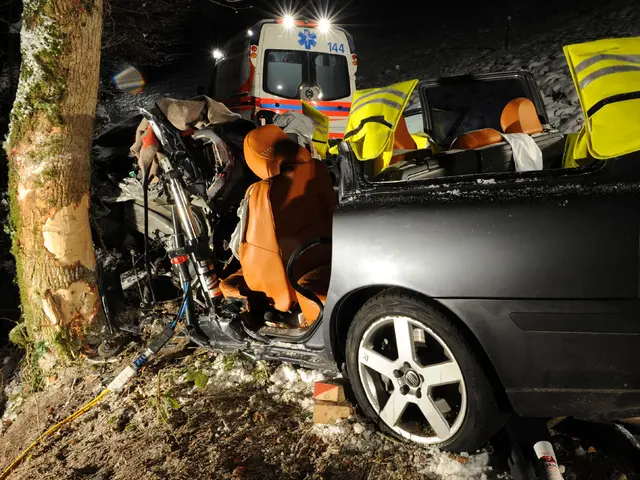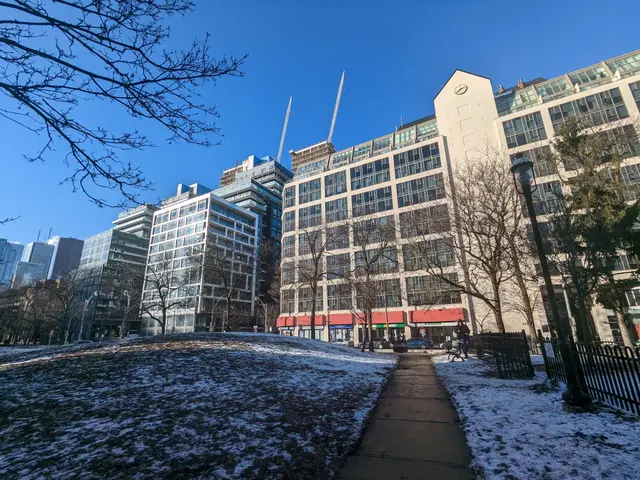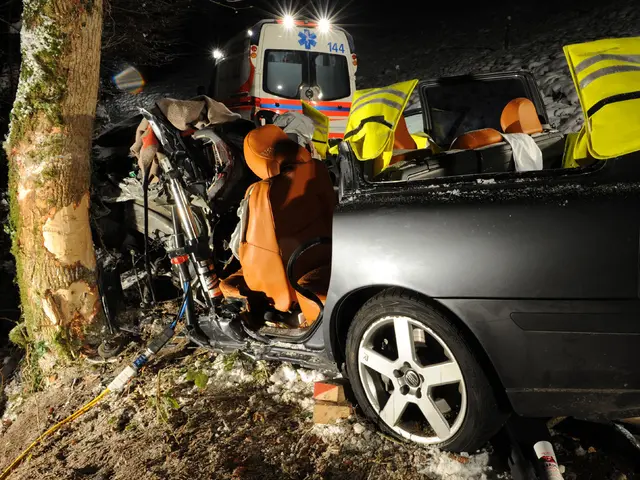A Tougher Approach to Borders: Alexander Dobrindt's Plan to Combat Illegal Immigration
Enhancing Surveillance by Law Enforcement Agencies along Country's Borders - Strengthened police presence at national borders, as declared by Dobrindt.
Alexander Dobrindt, the newly appointed Interior Minister, is pushing for a more robust police presence at Germany's land borders to combat irregular immigration. Here's a lowdown on his game plan.
- Ramping Up Police Presence: The plan encompasses a gradual boost in the number of police officers stationed at land borders. striking forces of around 3000 federal officers are expected to contribute to enhanced border supervision[2][3].
- Tightening the Border Screening: Dobrindt emphasizes that while Germany won't shut its doors entirely, border oversight will be significantly tighter. This rigorous check-up is expected to result in an increased number of asylum seekers being turned away at the border[2][4].
- Carrying Out Pushbacks: The heightened police presence will allow the authorities to conduct pushbacks, a process where some asylum seekers who fail to meet entry criteria are turned away. However, vulnerable individuals are still permitted entry[2][4].
- Reverse in Policy Direction: Dobrindt has officially rescinded a 2015 verbal instruction that forbade the Federal Police from rejecting asylum seekers at the border. This change in policy indicates a clear shift towards stricter controls on migration[5].
- Political Implications: This policy lines up with Chancellor Friedrich Merz's campaign pledges to counter illegal immigration by barring entry for those lacking proper documentation and to enhance deportations. The measures are also intended to reassure center-right voters anxious about immigration, given concerns over rising influence from far-right parties[2][5].
In a nutshell, Dobrindt's strategy aims to beef up police forces at land borders, enforce tighter entry controls including increased asylum rejections, and pushbacks, reversing earlier policies to reduce irregular migration into Germany. The policy embodies a more hardline stance on migration under the new government spearheaded by Chancellor Merz[2][3][5].
[1] https://www.spiegel.de/politik/ausland/neuer-innenausschuss-dobrindt-will-kaempfen-gegen-illegal-zuwanderung-a-5411051f3ce8cfca3a479973.html
[2] https://www.tagesschau.de/ausland/migranten- discussion-dobrindt-101.html
[3] https://www.welt.de/politik/deutschland/plus232624955/Do-Border-Controls-work-Wie-man-Migration-anstopfen-kann-es-ist-ein-Thema-welche-Politik- Von-Rechts-und-Links-bewegt.html
[4] https://www.funke.de/politik/do-Germany-plans-to-strengthen-border-control-as-refugee-crisis-recurs-34904364.html
[5] https://www.nytimes.com/2021/03/15/world/europe/germany-refugees-migration.html
- Alexander Dobrindt's plan to strengthen border control involves an increase in the number of police officers at land borders, aiming to beef up law enforcement.
- Dobrindt's policy emphasizes a tighter border screening process, resulting in a potential increase in the number of asylum seekers being turned away at the border.
- The enhanced police presence allows for the conduct of pushbacks, a process where asylum seekers who fail to meet entry criteria are turned away, while vulnerable individuals are still permitted entry.
- Dobrindt has rescinded a 2015 verbal instruction that forbade the Federal Police from rejecting asylum seekers at the border, signifying a shift towards stricter migration controls.
- This new policy aligns with Chancellor Friedrich Merz's campaign pledges to counter illegal immigration and bolster deportations, aiming to reassure center-right voters regarding immigration concerns.
- Dobrindt's approach to borders is designed to combat irregular migration into Germany, embodying a more hardline stance on migration under the new government led by Chancellor Merz.









